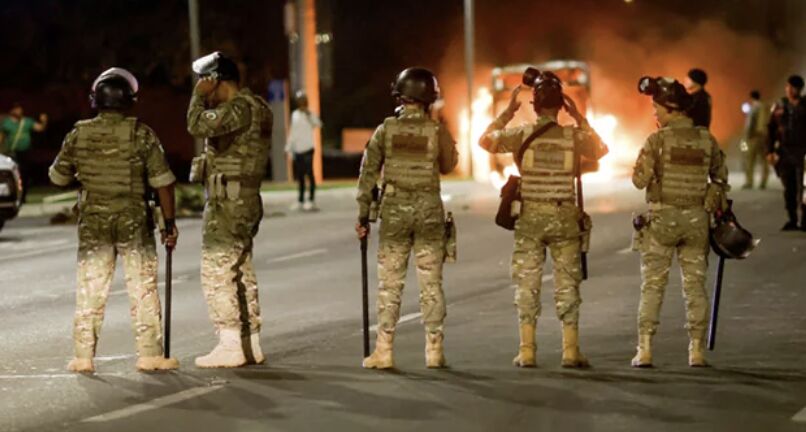Deadly Police Raids Rock Brazil: 42 Killed in 6 Days as Calls for Accountability Grow
Recent deadly police operations target the criminal gangs in Brazil, resulting in dozens of deaths and raising concerns about police violence and human rights abuses. It calls for independent investigations and reforms in security policies are growing.
In a series of deadly police operations targeting criminal gangs across Brazil, at least 42 people have been killed in six days, including nine in Rio de Janeiro, 14 in Sao Paulo state, and 19 in Bahia, according to authorities. The raid in Rio de Janeiro occurred in a complex of slums known as Complexo da Penha, where police came under attack during a raid on a high-level meeting of organized crime bosses. Rio state legislator Dani Monteiro criticized the operation, referring to it as a "massacre" and calling for an end to Governor Claudio Castro's security policies.
The recent raids have sparked calls for independent investigations into alleged police abuses in Brazil, where the security forces have faced accusations of human rights violations in their war against heavily armed drug gangs. There have been reports of alleged abuses, intimidation, and torture by police officers. Rights groups, including Amnesty International, have criticized the killings and argued that the police reaction does not seem proportional to the crimes committed. These incidents have raised concerns about the use of lethal force by the police in low-income neighborhoods, particularly in favelas, where the unbridled lethality of policing has resulted in numerous deaths.
Outcry over police violence has led to the adoption of police body cameras in certain states, such as Sao Paulo, which has been credited with reducing police violence. However, there is still limited insight into officers' decisions to use lethal force. Last year, 6,429 people were killed by the police in Brazil, according to a watchdog group. The high number of police-related deaths reflects the ongoing challenges faced by Brazil in addressing violence, organized crime, and human rights abuses in the country. Calls for accountability, independent investigations, and reforms in security policies continue to grow as the country grapples with this complex issue.




